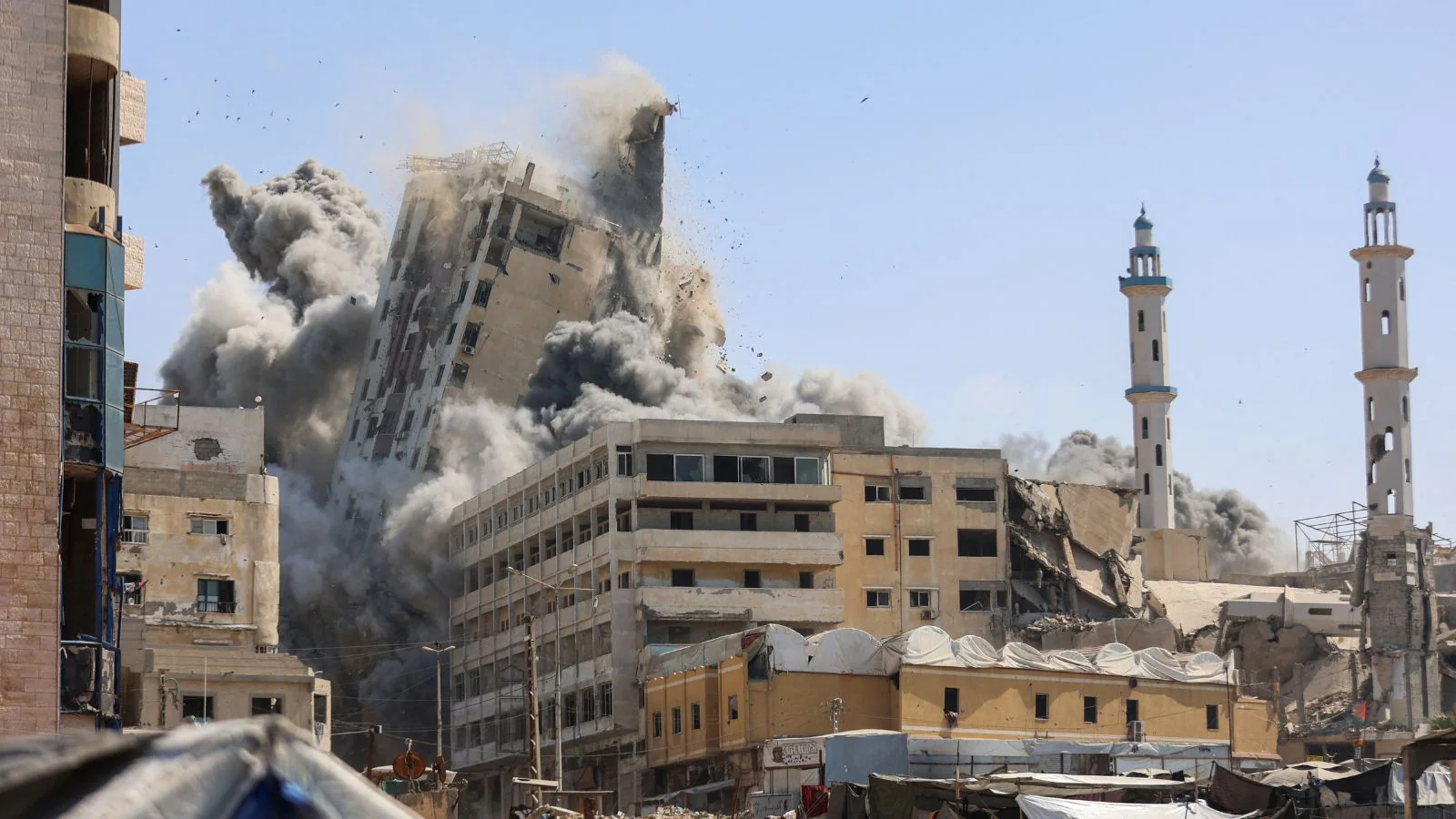By News18,Rahul Shivshankar
Copyright news18

At the very outset, let us agree unambiguously that Israel’s indiscriminate bombing of Gaza is no longer justifiable. What began as a legitimate pursuit of justice for the October 7 attack is increasingly looking like a disproportionate use of force. A leaked Israeli military report, cited by media organisations in September, claimed that 83% of Gaza’s war dead are civilians.
With collateral suffering multiplying at such a scale, the Gaza war needs to end immediately. Hamas must hand over the remaining hostages—dead or alive—and Israel’s forces must pull back.
But instead of the world working towards this basic objective, a new complication has been injected into the debate: recognition of Palestinian statehood. Activists and pressure groups are lobbying hard for countries to recognise Palestine as a stand-alone state. The UK, France, Canada, and some other Western democracies have now recognised the State of Palestine.
Yet key questions remain unanswered. Will recognition guarantee peace? Will it compel Hamas to return the hostages? Will it enable the Palestinian Authority to regain control over Gaza and rein in Hamas? As of today, Palestine is politically divided: Gaza is run by Hamas, while the West Bank remains under the Palestinian Authority. If there is to be a Palestinian state, who would its legitimate government be? Recognition without an effective authority that accepts Israel’s right to exist and renounces terrorism risks being meaningless.
Stephen Daisley, writing in The Spectator, asks a blunt question: “If there is a state of Palestine, where is it?” Daisley follows up by pointing out that on paper, the 1949 armistice lines would give Palestine the West Bank, Gaza, and East Jerusalem. In reality, Palestinians exercise control over only parts of these territories: Jerusalem is with Israel, Gaza has limited sovereignty under blockade, and the West Bank is fragmented under the Palestinian Authority.
Into this quagmire of unresolved questions and unlikely scenarios has leapt India’s entire vanguard of Lutyens wokery. In particular, the Congress party. Drawing on the sentimentalism of post-colonial Arab-Asian solidarity, it has slammed the Modi government for “moral cowardice” on Palestine. For not taking an overt pro-Palestine position. But if morality alone dictated foreign policy, Congress governments should have recognised Tibet or backed Balochistan. Both Tibetans and Baloch are people dispossessed by colonial borders and denied self-determination.
Moral indignation is clearly elastic and selective. National interest, by contrast, is far more consistent and remains the soundest standard against which foreign policy decisions should be measured.
So, is recognising Palestine as a state still in India’s national interest? The facts suggest otherwise.
First, India can no longer afford to sour ties with Israel. It is a steadfast military ally and reliable weapons supplier. Second, Israel’s intelligence on Islamist terrorist plots has been a virtual lifeline for India. Third, Israel is an unwavering supporter of India’s position on Kashmir at the UN. Fourth, Tel Aviv serves as an important interlocutor for New Delhi in Washington. Fifth, Israel has consistently called out Pakistan’s duplicity on terrorism. Sixth, Israel provides strategic depth to India in the Middle East. And finally, Israel is the lone democracy in West Asia, making it a natural partner.
In sharp contrast, despite India’s advocacy for its cause, Palestine has never backed India’s case on Kashmir. Not at the UN and not even within the Organisation of Islamic Countries. The Hamas leadership, slain Khaled Meshaal and Ismail Haniyeh, had ties to terror groups in Pakistan and backed Kashmir’s alleged right to self-determination. More recently, the Palestinian Authority stopped short of endorsing India’s Operation Sindoor, launched to avenge the Pahalgam carnage by Pakistan-based terror groups.
And so, in the end analysis, even if the Modi government were to renew its commitment towards a case for Palestinian statehood and take a more censorious view of Israel, it would bring little real benefit.
A more prudent course for India is to press for an immediate ceasefire, humanitarian relief, and negotiations that can lead to a genuine two-state solution built on effective governance, renunciation of terror, and acceptance of Israel’s right to exist. In short, in the future, any outright backing from India for Palestinian statehood must be tied to those preconditions.